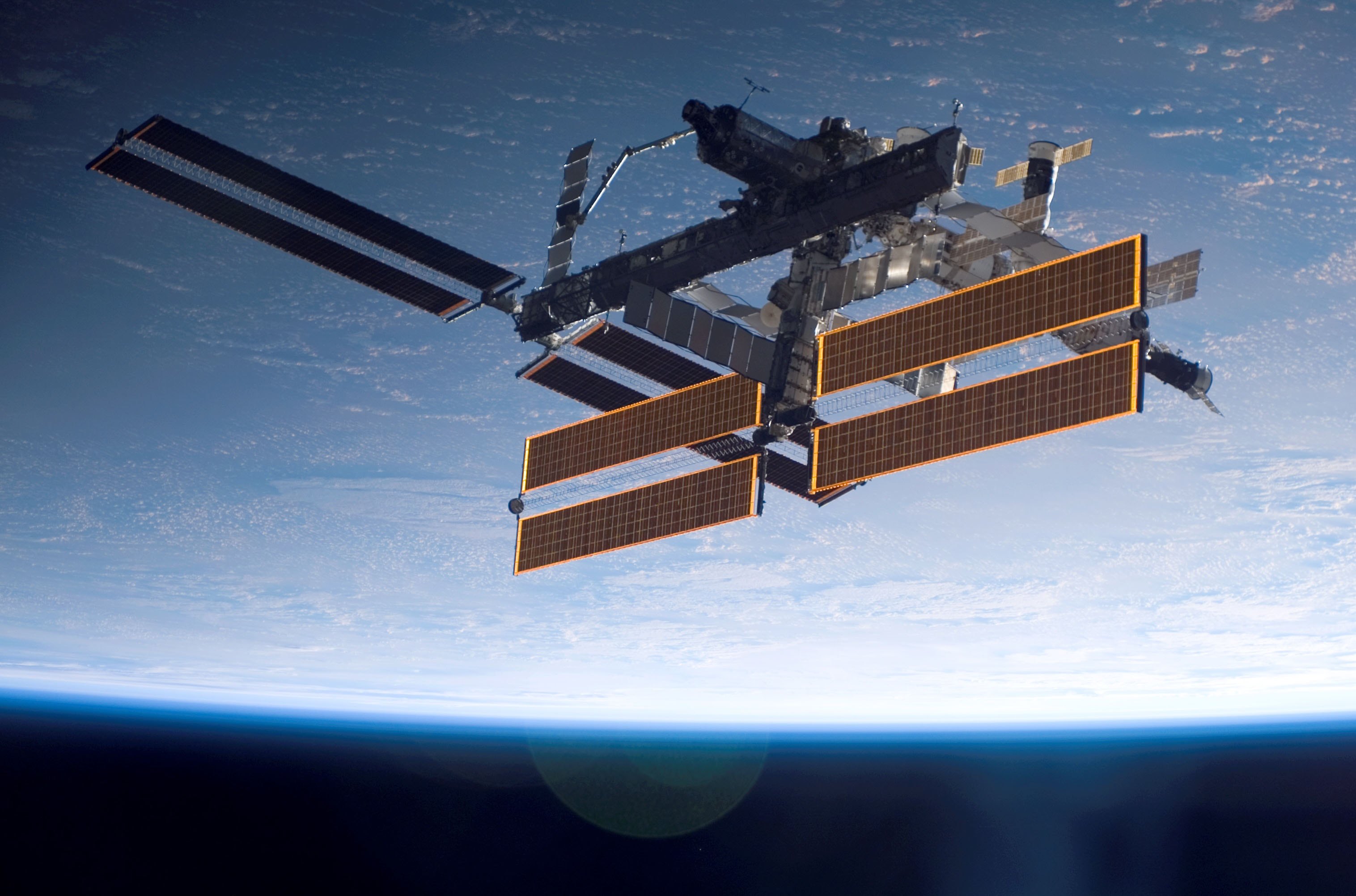NASA is about to let private companies make movies on the International Space Station


A free daily email with the biggest news stories of the day – and the best features from TheWeek.com
You are now subscribed
Your newsletter sign-up was successful
Prepare to blast off. Yes, that means you.
NASA will soon start letting commercial businesses use the International Space Station, it announced Friday. That means private astronauts will be able to test products, conduct research, and even make movies in the zero-gravity environment.
Unlike Russia, NASA has long resisted letting anyone using its side of the ISS for commercial purposes. That changed last August when administrator Jim Bridenstine started looking into how business revenue could offset NASA mission costs. After all, it costs NASA between $3 and $4 billion just to operate the ISS each year, The Verge notes. So with its Friday announcement, NASA also released preliminary pricing for cargo storage and ISS facilities usage, with a one-night stay costing about $35,000.
The Week
Escape your echo chamber. Get the facts behind the news, plus analysis from multiple perspectives.

Sign up for The Week's Free Newsletters
From our morning news briefing to a weekly Good News Newsletter, get the best of The Week delivered directly to your inbox.
From our morning news briefing to a weekly Good News Newsletter, get the best of The Week delivered directly to your inbox.
A private trip to the ISS also comes with some strict limitations. Just five percent of NASA's allocated crew resources and cargo capability, as well as 175 kg of cargo launch capability, will be set aside for private use each year. Private missions for now will be limited to two per year, and they can last up to 30 days. That means there will be stiff competition for the spots, and with scientific projects getting a priority treatment, it'll probably be a while before we see a real zero-gravity sequel to Gravity.
In the meantime, NASA is also working on sending the first woman and another man to the moon by 2024, and says American companies will help NASA maintain a "sustainable presence" there. NASA has also said it would eventually like private companies take over the ISS full-time to cut those massive operating costs.
Read all of NASA's plan here.
A free daily email with the biggest news stories of the day – and the best features from TheWeek.com
Kathryn is a graduate of Syracuse University, with degrees in magazine journalism and information technology, along with hours to earn another degree after working at SU's independent paper The Daily Orange. She's currently recovering from a horse addiction while living in New York City, and likes to share her extremely dry sense of humor on Twitter.
-
 American universities are losing ground to their foreign counterparts
American universities are losing ground to their foreign counterpartsThe Explainer While Harvard is still near the top, other colleges have slipped
-
 How to navigate dating apps to find ‘the one’
How to navigate dating apps to find ‘the one’The Week Recommends Put an end to endless swiping and make real romantic connections
-
 Elon Musk’s pivot from Mars to the moon
Elon Musk’s pivot from Mars to the moonIn the Spotlight SpaceX shifts focus with IPO approaching
-
 Blue Origin launches Mars probes in NASA debut
Blue Origin launches Mars probes in NASA debutSpeed Read The New Glenn rocket is carrying small twin spacecraft toward Mars as part of NASA’s Escapade mission
-
 Dinosaurs were thriving before asteroid, study finds
Dinosaurs were thriving before asteroid, study findsSpeed Read The dinosaurs would not have gone extinct if not for the asteroid
-
 SpaceX breaks Starship losing streak in 10th test
SpaceX breaks Starship losing streak in 10th testspeed read The Starship rocket's test flight was largely successful, deploying eight dummy satellites during its hour in space
-
 Rabbits with 'horns' sighted across Colorado
Rabbits with 'horns' sighted across Coloradospeed read These creatures are infected with the 'mostly harmless' Shope papilloma virus
-
 Lithium shows promise in Alzheimer's study
Lithium shows promise in Alzheimer's studySpeed Read Potential new treatments could use small amounts of the common metal
-
 Scientists discover cause of massive sea star die-off
Scientists discover cause of massive sea star die-offSpeed Read A bacteria related to cholera has been found responsible for the deaths of more than 5 billion sea stars
-
 'Thriving' ecosystem found 30,000 feet undersea
'Thriving' ecosystem found 30,000 feet underseaSpeed Read Researchers discovered communities of creatures living in frigid, pitch-black waters under high pressure
-
 New York plans first nuclear plant in 36 years
New York plans first nuclear plant in 36 yearsSpeed Read The plant, to be constructed somewhere in upstate New York, will produce enough energy to power a million homes
